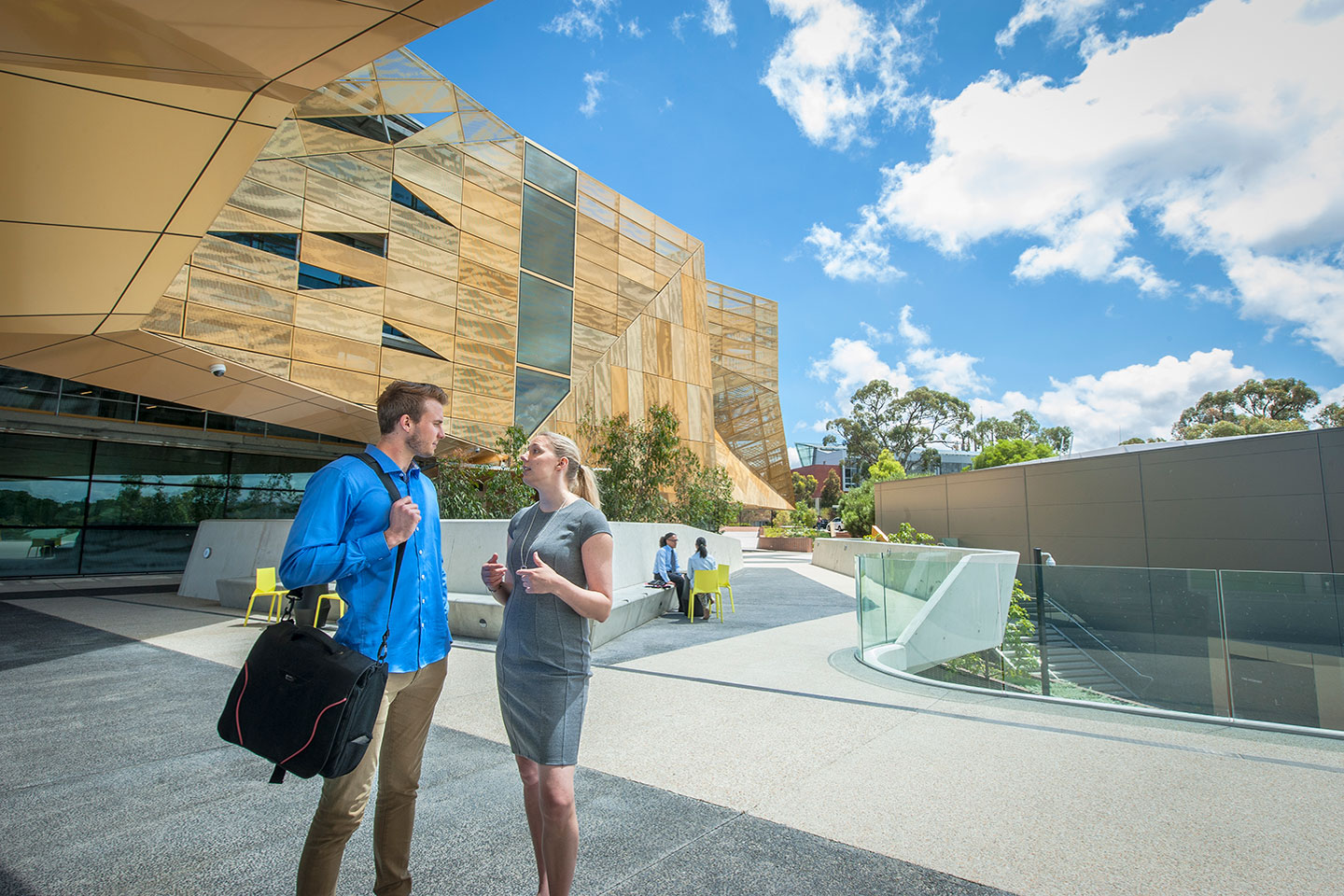

The world is full of questions that need answers.
Experts from Edith Cowan University (ECU) are at the forefront of world-leading research that will impact future national and global policy, practices and technology.
But far from being locked away in their labs, ECU researchers are translating their findings by teaching today’s professionals who will shape the jobs, communities, environment and industries of tomorrow.
Work is changing, think about the future
Professor of Entrepreneurship and Innovation Pi-Shen Seet from ECU’s School of Business and Law is researching how we can prepare organisations and leaders for an uncertain future.
He focuses on how new technology is disrupting traditional ways of working and how organisations must be agile and adapt to what he calls ‘Industry 4.0’.
“This is the fourth revolution in technology that’s going to affect industry, that’s going to merge so called cyber technologies with physical and human technologies,” he said.
“My students will have to be very comfortable working in multi-disciplinary teams, across disciplines and in different diverse settings.”
Postgraduate Business courses equip students with up-to-date theoretical knowledge and industry-focussed practical experience.
For more information on studying Business at ECU: ecuworldready.com.au/business
Research protecting frontline heroes
Professor of Occupational and Environmental Health Jacques Oosthuizen and his research team from ECU’s School of Medical and Health Sciences have investigated the effects of exposure to hazardous chemicals on firefighters, in an effort to reduce incidence of cancer.
Professor Oosthuizen said this research led to a simple change of protocol when a firefighter comes out of a fire scenario to first take off their protective tunic, put it in a decontamination bag and then remove their respiratory protection.
“Our students benefit from the research we do here because they get exposed to our fantastic laboratory facilities and our team of researchers who are able to transfer their knowledge and skills in problem solving and critical thinking.”
Recent legislative changes require individuals working in occupational health and safety, training, environmental and public health to be suitably qualified with a formal accreditation.
For more information on studying Occupational Health and Safety at ECU: ecuworldready.com.au/ohs
Growing demand for educators
Bachelor of Education (Secondary) Course Coordinator Dr Sarah Jefferson said there is a growing demand for more specialist secondary teachers in science, maths and English.
“Western Australia is currently facing a shortage of qualified high school teachers across metro, regional and remote areas,” Dr Jefferson said.
“The demand will continue into the future and graduates will be well placed to gain employment and make a positive difference to the lives of young people in WA.”
Professionals looking for a career switch may be able to study a Master of Teaching, specialising in either early childhood, primary or secondary education.
For more information on studying Education and eligibility requirements : ecuworldready.com.au/education
Using data science to unlock better medical practices
Dr Stacey Reinke's research looks at data as the driving force behind understanding biology and disease.
“My main focus and research is a field called metabolomics. I look at all the chemicals in the body and try to look for underlying patterns,” Dr Reinke said.
Through her recent research in asthma, Dr Reinke used new metabolomics tools to unlock those insights, including state-of-the-art technology to measure metaboloids and computational workflows to interrogate data.
“My research into unlocking better diagnostic practices will help postgrads in their research.”
For more information on studying Mathematics at ECU: ecuworldready.com.au/mathematics
Supercharge your clinical skills
Helena Halton is the Director of Postgraduate Nursing Studies and Nurse Practitioner at ECU's Chronic Disease Wellness Clinic. She is looking at how community-based health care can improve outcomes for people with chronic disease.
“ECU’s Chronic Disease Wellness Centre provides an opportunity for postgraduate students to develop their skills in a real-world setting,” Ms Halton said.
For more information on studying Nursing at ECU: ecuworldready.com.au/nursing
Flexibility to get your career moving
You may already have a bachelor’s degree or professional experience. But a postgraduate degree can give you the edge needed to succeed in your chosen career – or transition to a new one.
ECU provides flexible study options including online and part-time, which means you can choose how you study, to suit your life and work commitments.
Take control of your career and apply today: ecuworldready.com.au/postgrad






